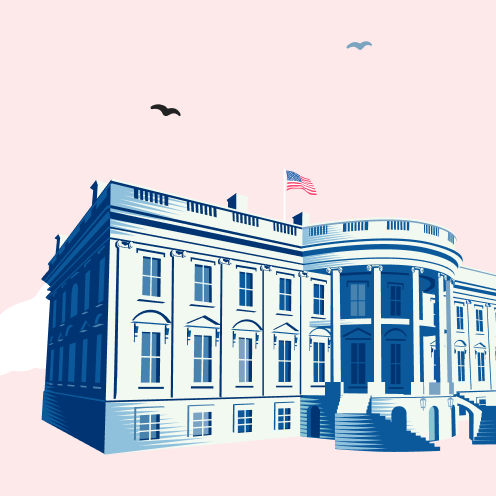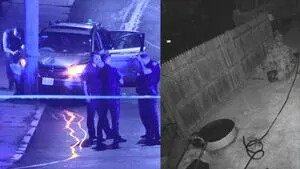There was a catch. To collect, villagers had to renounce Buddhism, give up their prayer beads, and swear to oppose the Dalai Lama. For Tibetans, the religious leader is the embodiment of their faith. To Beijing, he is a dangerous separatist, an enemy of the state.
Some took the handouts, feigning party loyalty—but not Phurba Tsering. He rejected the offer, settling instead for more modest gifts that went to all families. The gifts came with a poster depicting Mao Zedong and other past Chinese leaders. Families were told to hang the posters in their home as a sign of gratitude.
As a practical matter, Phurba could have used financial help. He had a wife and three young children, and he scratched out a livelihood digging for caterpillar fungus, a prized ingredient in traditional Tibetan and Chinese medicine. Yet he had been raised in the Buddhist faith, listening to sermons on a portable cassette player while tending yaks, sheep and horses in the mountains. One teaching, the impermanence of wealth, stayed with him.
Phurba said later he couldn’t stomach the idea of party officials trying to buy his allegiance and turn him against the Dalai Lama. He tossed his poster in the trash in a private act of defiance. Later, he burned the trash on the banks of the Xianshui River.
In the moment, Phurba didn’t see it as a test of character or a life-shattering decision, though it turned out to be both. He learned too late there was little privacy from China’s ubiquitous surveillance measures. Days later, police came for him.
Phurba, 30 years old at the time, would never return home.
At the local police station, six policemen beat Phurba with their fists, feet and metal pipes, led by a Han Chinese officer known to Tibetan residents as Crooked Nose. The officers lashed Phurba with coiled wire and gave him electric jolts with a cattle prod.
Between beatings, they interrogated him, their fingers jabbing two photographs. One was a picture of the Dalai Lama that police took from his home after he was detained.
Why are you so grateful to him? Does he give you even a mouthful of food?
The other photo showed Phurba on the riverbank, bent over the flaming poster of Mao and the others.
Why are you so ungrateful to Communist Party leaders? What are you doing to their portrait?
“Just burning trash,” Phurba said, recalling the exchange.
So you think Communist Party leaders are trash?
“Yes,” he said, overcome with anger.
Most of all, the police wanted to know who else was involved. “Who is behind you?” they asked, seeking the name of a rebel instigator.
Phurba recalled the next two days as a blur of assaults, blackouts and questions from police. The officer Crooked Nose beat him until his mouth filled with blood and threatened to kill him. The first miracle came at the end of the second day.
As officers left Phurba after a final pummeling that night, one of them—a Tibetan from a local family—surreptitiously dropped a strip of metal. It looked like a fragment of a radio antenna with the tip flattened. Phurba shoved it in the lock of his handcuffs and rattled it around. After a few tries, the bracelets clacked open. He checked the door. It was unlocked.
Phurba could hear bursts of laughter from the officers upstairs and decided to take his chances. Once outside, he climbed a stack of firewood, clambered over the compound walls and fled. He was hungry and covered in welts. A stabbing pain felt like broken ribs.
Phurba dragged himself to a relative’s house but didn’t stay long, knowing Crooked Nose would soon be after him. After a meal and a night’s rest, he set off wearing a traditional ankle-length chuba coat, beginning a decadelong escape, largely on foot, that would take him across thousands of miles of rugged terrain and three countries.
Tibetans risk retribution for speaking out about their homeland, which Beijing has largely closed from international view. This account is based on interviews with Phurba, his family and officials in the Tibetan government-in-exile in India, as well as Chinese legal documents and Communist Party policy documents on Tibet.
Authorities in Sichuan province’s Xinlong County, where Larima is located, said the matter was confidential and declined to comment.
Servitude
While Phurba was held by police, his wife, Tsering Lhamo, was home with their children, the youngest only a few weeks old. For two days, she heard nothing and braced for the worst. When she finally learned Phurba had made it out, her relief turned to fear.
As punishment for her husband’s escape, Tsering was forced to work as an unpaid servant at the police station. She swept floors, chopped firewood, shoveled snow and scrubbed toilets, often with her children in tow. Her brothers-in-law helped her with money but there was never enough. After 18 months of labor, with no end in sight, Tsering made a difficult choice.
She packed a small bag and dropped off her children with her mother. She said she needed to run errands. Instead, she left town, planning to travel 120 miles north to the high pasturelands of Golog, for centuries a home to Tibetan nomads. There, she could find work milking yaks and making cheese. After saving enough money, she planned to return for her children.
Over the next two weeks, Tsering walked, hitchhiked and stopped at restaurants and hotels where she washed dishes and cleaned floors in exchange for food and a place to sleep. She met a monk who helped her get a job in Golog tending livestock for a nomadic family. Tsering missed her children but had no way to call them.
If she had, she would have learned of the troubles back home.
On the run
After Phurba escaped from police, he took refuge in the mountains that ring his hometown—a landscape of green peaks speckled with blue snow-fed lakes. The land is steeped in Tibetan lore going back centuries, before Beijing carved it into the province of Sichuan.
Growing up, Phurba and his siblings absorbed the trauma of China’s takeover decades earlier. Their mother’s uncle died in Chinese detention, she had told them. Their father’s uncle was forced to renounce his monkhood and hid from Chinese authorities in the mountains.
That family history fueled Phurba’s rage when the police insulted his devotion to the Dalai Lama, who lives in exile in India. “He has been in our hearts since our ancestors’ time,” Phurba said. “It was unacceptable.” While many Tibetans learned to keep their faith quiet, Phurba’s wife described him as a man not easily swayed or cowed—stubborn, she said.
For months, Phurba and his brothers hoped police interest in his capture would fade. But his jailbreak had embarrassed and infuriated local authorities, especially Crooked Nose, his brothers told him. Among Tibetans, Crooked Nose had developed a reputation for cruelty.
Phurba decided to remain in hiding.
The oldest of his siblings, Phurba relayed messages through relatives to his brothers, who ferried supplies such as barley flour and dried meat to rendezvous points away from settlements and police patrols. A few times, when supplies ran low, Phurba took the risk of borrowing a cellphone to call his brothers directly.
Nearly two years after Phurba’s escape, the deliveries stopped for good.
Behind bars
In August 2014, police took two of Phurba’s younger brothers into custody. There was no point denying that they were in touch with Phurba, police told them. Authorities had monitored their phones and knew of the calls.
The older of the two brothers, Pema Rinzin, ended up in a solitary cell with his arms stretched overhead and cuffed to the bars of a window. Police took turns kicking and punching him. Pema had a choice, they said. Either help them find Phurba and go free, or spend years in detention.
As the days passed, Pema said, one or both of his arms remained cuffed to window bars, forcing him to stand. When he nodded off or passed out, the cuffs tightened around his wrists, jolting him awake. Police used cattle prods, whips and batons on him, he said.
Pema told police that the brothers had helped Phurba with food and clothes a few times, but he said he didn’t know how to find Phurba in the vast wilderness.
The torture stopped after a month, but the brothers remained behind bars, unable to meet or talk to each other. Every day, they had to read Communist Party slogans. Sometimes, they were shown propaganda documentaries of Tibetans welcoming the invading Chinese army in 1950.
A year ticked by, then two, then three. Pema didn’t know if his brother was dead or alive.
Lost yak
From the start of Phurba’s odyssey, he steered clear of villages, unsure of how wide Crooked Nose’s search for him had spread. He skirted nomadic communities where he might be recognized.
After losing contact with his brothers, he pushed deeper into the mountains. When he met strangers, he told a simple cover story: “I’m looking for my lost yak.” At night, he sometimes asked nomads for food and shelter, saying he would continue his search in the morning.
In summer, Phurba looked for raspberries and other wild fruit, as well as mushrooms, rhubarb and edible herbs, relying on skills he learned as a boy. On rare occasions, he found scraps of meat left behind by nomads. When he was desperate, he picked flesh off animal carcasses left by wolves, which he spotted from the vultures circling overhead.
In winter, temperatures fell below freezing and the land turned barren. Phurba, who didn’t have the strength to haul a tent, slept on the ground. He fashioned the long, broad sleeves of his coat into a pillow.
Weeks turned to months and years. His skin hardened, wind-scorched and leathery. He looked “almost like a monster,” Phurba said. “I often thought that it would be better to die than to live like that.”
The hardest part, he said, was not knowing his family’s fate. Once he asked herders whether they knew about a man from the village of Larima who was on the run for burning a Communist Party portrait. The herders said they had heard that the man’s wife and mother had left their hometown.
To where, they didn’t know.
Crossed paths
After five years roaming a mountainous 15,000 square-mile stretch of western Sichuan, Phurba decided to head north to Golog, where he had a distant relative, a monk, who might know where his family was.
Phurba, who had no idea how to reach Golog, sought guidance from locals. For months, he avoided highways and hewed to mountain trails, worried his wild look might attract attention. He confided his circumstances to someone who suggested he pose as a religious pilgrim, which would excuse his appearance and make travel easier on direct routes.
In 2018, Phurba left the mountains, hoping he had put enough miles between himself and authorities back home to travel safely. He asked around and eventually got a phone number for his relative, who told him that his mother had moved from their hometown years earlier, but he wasn’t sure where.
For months, Phurba called his relative periodically on borrowed phones, hoping for any news on his mother’s whereabouts. One day, the monk said he had found her phone number.
Phurba called, and a familiar voice answered, bringing tears to his eyes. His mother, Ashong, denied her identity at first, worried that the call was a trap by authorities. Phurba persuaded her that he was, in fact, her son, and they reunited in the highlands of Hainan, a Tibetan region of Qinghai province, where she worked grazing and milking yaks.
Hardship had transformed them both. After years apart, Phurba was struck by how frail she appeared. “She didn’t look like the mother I remembered,” he said. Phurba spared her the details of his journey. “She could tell how much I had suffered just by looking at me,” he said.
Phurba’s mother revealed the secret behind his escape in 2012. She had paid a bribe to the family of the Tibetan police officer who provided the tool and the open door. Phurba also learned the consequences of his flight—his wife leaving behind their children and his two brothers locked up for years.
Phurba’s mother had brought his eldest son to live in a monastery close to her. Phurba’s daughter had been sent to a Chinese-language boarding school near their hometown. His youngest child was with relatives. Phurba didn’t dare visit them, fearing capture.
He learned his wife was in Golog, south of where his mother lived. He arrived without warning. “It was surreal,” said Tsering, who expected to never see him again. They spent a few days in a joyous reunion before Phurba left, worried his wife’s employers would learn he was a wanted man. He found work helping herders 130 miles north, at Qinghai Lake.
Not long after, he learned his brothers had been freed after four years in detention. A condition of their release was that they must never contact Phurba. Despite that, the men reunited.
Pema, the older of the two freed brothers, said he didn’t blame Phurba for what happened. Yet, if he could rewind the clock, Pema said, he would have stopped him from burning the poster.
The brothers debated whether the family could ever live in peace. They were all scattered, with Phurba and his wife expecting their fourth child.
“We came to the conclusion,” Phurba said, “that staying in Tibet offered no hope.”
Last leg
For years, Tibetans fleeing China crossed into Nepal and then to India, where many settled. But the number of escapees had dwindled after Beijing tightened the border around 2012 with foot patrols, surveillance cameras and drones.
Pema decided their youngest brother should try first. It took months of preparation, and their mother’s life savings, to get him to India in 2019. Phurba planned to go next, but the Covid-19 pandemic stalled him.
In 2022, after visiting his wife to say goodbye, Phurba traveled to Lhasa, the capital of the Tibet Autonomous Region, and then to the border town of Kyirong, on the east bank of the Kyirong Tsangpo river. A guide, who would help him navigate the Himalayas into Nepal, was waiting on the other side of the river.
Heavy summer rains had caused the river to swell, making it too dangerous to cross. The guide’s fee kept piling up for the 18 days it took Phurba to make it across.
Approaching the China-Nepal border, Phurba would need one more bit of luck. He and his guide descended a steep slope, careful to avoid nearby border guards. Phurba’s foot kicked loose a chunk of rock that tumbled loudly down the mountainside. He froze, afraid the guards would turn their way. As Phurba prayed to the Dalai Lama, a herd of mountain goats thundered past in a cacophony of hooves, he said, masking the presence of the two men.
Phurba arrived in Nepal in August 2022. From there, he traveled to the northern Indian city of Dharamshala, where the Dalai Lama has lived since fleeing Tibet in 1959.
As a new exile, Phurba received the Dalai Lama’s blessings in person.
“You have faced many hardships on your journey, I have been keeping you in my thoughts,” Phurba recalled the Dalai Lama saying. “Don’t worry, you will be reunited with your family.”
The following year, Phurba’s wife, who was more than six months pregnant, their four children and Phurba’s mother made their own escapes to India. After their arrival, Phurba saw his three older children for the first time in 10 years.
Later in 2023, Pema fled China. He and his mother now live in a Tibetan settlement in southern India where they run a small restaurant.
Phurba and Tsering sell Tibetan steamed dumplings and noodles from a street cart. It isn’t an easy life, Phurba said, but he likes living in the mountains. They remind him of home.
Write to Niharika Mandhana at niharika.mandhana@wsj.com and Josh Chin at Josh.Chin@wsj.com
Illustration source imagery: iStock















